Welcome to the wonderful world of Collie ownership! Whether you've brought home a Rough Collie, reminiscent of the famous Lassie, or a sleek Smooth Collie, you're in for a treat. These intelligent, loyal, and sensitive dogs are a joy to train, but they do require a thoughtful approach. Let's dive into some unique and effective training strategies tailored specifically for Collies, ensuring you and your furry friend get off to the best possible start.
Understanding the Collie Mindset: The Key to Training Success
Before we delve into specific training techniques, it's crucial to understand what makes Collies tick. This breed has some unique characteristics that influence their learning style:
The Herding Heritage
- Collies were bred to herd sheep, which impacts their behavior
- They may try to “herd” family members, especially children
- This instinct can be channeled positively in training
Sensitivity Superpower
- Collies are incredibly attuned to their owner's emotions
- Harsh corrections can be detrimental to their confidence
- Positive reinforcement is the golden ticket in Collie training
Intelligence in Action
- Ranked among the most intelligent dog breeds
- They can learn complex commands and tasks
- Boredom can lead to mischief, so mental stimulation is key
The Collie Gaze
- Collies are known for their intense, focused stare
- This “eye” was used in herding and can be leveraged in training
- Making eye contact is a powerful tool for communication
Armed with this understanding, you're ready to start your training journey with your Collie companion.
Setting the Stage: Creating the Perfect Training Environment
The environment you choose for training can make or break your success. Here's how to set up for Collie training triumph:
The Distraction Spectrum
- Start in a quiet, familiar room with minimal distractions
- Gradually introduce mild distractions (e.g., a toy in the room)
- Progress to more challenging environments (backyard, park)
- Eventually, train in high-distraction areas
The Power of Routine
- Collies thrive on predictability
- Set regular training times each day
- Create a “training ritual” to signal the start of a session
Comfort is Key
- Ensure the training area is comfortable for your Collie
- Avoid slippery surfaces that might cause anxiety
- Consider using a special mat to designate the training space
Pro Tip: The “Go to Your Place” command, using this special mat, can become a valuable tool in your training arsenal.
The Collie Communication Code: Speaking Their Language
Effective communication is the cornerstone of successful training. Here's how to ensure you and your Collie are on the same wavelength:
Verbal Cues: Choose Wisely
- Use clear, distinct words for commands
- Opt for words that don't sound similar to avoid confusion
- Consistency is key – use the same word for the same action every time
Body Language: The Silent Conversation
- Collies are masters at reading body language
- Use hand signals in conjunction with verbal commands
- Be aware of your own body language – tension or frustration will be noticed
The Power of Eye Contact
- Leverage the famous Collie gaze in your training
- Use eye contact to maintain focus and connection
- Teach a “Watch Me” command for instant attention
Tone of Voice: The Emotional Messenger
- Use a cheerful, upbeat tone for praise and encouragement
- Employ a firm (but not harsh) tone for corrections
- Avoid yelling or using an angry voice, which can damage trust
Remember, clear and consistent communication builds a strong foundation for all your training efforts.
Positive Reinforcement: The Collie's Learning Love Language
Positive reinforcement is the most effective training method for sensitive Collies. Here's how to make it work for you:
Treat Selection: Choose Your Currency Wisely
- Use high-value treats for new or challenging tasks
- Opt for smaller treats to avoid overfeeding
- Consider using part of your Collie's regular meal as training treats
The Praise Palette
- Vary your praise words to keep things interesting
- Use enthusiastic body language along with verbal praise
- Find your Collie's favorite form of praise (e.g., gentle petting, excited voice)
Clicker Training: Precision in Communication
- Introduce the clicker as a marker for correct behavior
- Click the instant your Collie performs the desired action
- Always follow the click with a treat, even if you clicked by mistake
The Power of Play
- Use play as a reward for some Collies
- Incorporate favorite toys into training sessions
- A quick game of tug or fetch can be a powerful motivator
Pro Tip: Create a “reward buffet” with a mix of treats, toys, and praise. This variety keeps training exciting and unpredictable.
Essential Commands: Building Your Collie's Vocabulary
Now that we've covered the foundations, let's explore some essential commands every Collie should know:
The “Sit” Symphony
- Hold a treat close to your Collie's nose
- Slowly move the treat up and back over their head
- As their head tilts back to follow the treat, their bottom will naturally lower
- Say “Sit” as they perform the action, then immediately reward
Collie Twist: Once mastered, practice “Sit” at a distance, leveraging their intense focus.
The “Stay” Stability Challenge
- Ask your Collie to sit
- Open your palm in front of you and say “Stay”
- Take a step back, then immediately return and reward
- Gradually increase duration and distance
Herding Hack: Use the “Stay” command to control herding instincts around moving objects or people.
The “Come” Callback
- Start in a low-distraction environment
- Say your Collie's name followed by “Come” in a cheerful tone
- Run backwards as they approach, encouraging them to follow
- Reward generously when they reach you
Collie Quirk: Use their natural desire to “herd” you by occasionally jogging away playfully during recall practice.
The “Leave It” Life-Saver
- Place a low-value treat on the floor and cover it with your hand
- When your Collie loses interest in your hand, say “Leave it” and reward with a higher-value treat from your other hand
- Progress to uncovered treats and real-life scenarios
Herding Helper: This command is crucial for managing your Collie's instinct to chase moving objects.
Tackling Collie-Specific Challenges: Turning Instincts into Assets
Collies have some breed-specific traits that can present training challenges. Here's how to address them:
The Herding Hustle
- Redirect herding behavior to appropriate toys or games
- Teach a solid “Leave it” command for when herding instincts kick in
- Provide structured outlets like herding balls or agility training
The Barking Ballad
- Teach the “Quiet” command using positive reinforcement
- Provide mental stimulation to prevent boredom-induced barking
- Consider teaching a “Speak” command to have better control over barking
The Sensitivity Situation
- Always use gentle, positive training methods
- Be aware of your tone and body language
- Build confidence through success in training and socialization
The Energy Equation
- Ensure adequate physical exercise before training sessions
- Incorporate mental stimulation into daily routines
- Use interactive toys and puzzles to keep your Collie engaged
Remember, many of these “challenges” are simply Collie traits that can be channeled positively with the right approach.
Beyond the Basics: Engaging Your Collie's Brilliant Mind
Once your Collie has mastered the basics, it's time to challenge their intelligent mind with more advanced training:
Trick Training Triumphs
- Teach complex tricks like “Bring my slippers” or “Close the door”
- Use trick training as mental stimulation and bonding time
- Show off your Collie's skills to reinforce their confidence
Agility Adventures
- Set up a simple agility course in your backyard
- Start with basic obstacles like jumps and tunnels
- Gradually increase difficulty as your Collie gains confidence
Nose Work Narratives
- Hide treats or toys around the house or yard
- Start with easy finds and gradually make it more challenging
- Consider enrolling in formal nose work classes
Obedience Olympics
- Participate in obedience trials or competitions
- This provides structured goals for you and your Collie
- The focused training required can strengthen your bond
Pro Tip: Rotate through these advanced training activities to keep things fresh and exciting for your Collie.
The Social Savvy Collie: Mastering Interactions
Proper socialization is crucial for Collies. Here's how to ensure your furry friend is a social butterfly:
The Puppy Party Principle
- Expose your Collie to a variety of people, animals, and environments early on
- Make all new experiences positive with treats and praise
- Host “puppy parties” with friends and family to practice social skills
The Doggy Date Diary
- Arrange playdates with other well-behaved dogs
- Start with calm, friendly dogs and gradually introduce more energetic playmates
- Always supervise interactions and intervene if play becomes too rough
The Public Paw-formance
- Take your Collie to dog-friendly public places
- Practice obedience commands in various environments
- Reward calm behavior around new people and situations
The Handling Habit
- Regularly touch your Collie's paws, ears, and mouth
- This makes grooming and vet visits easier
- Involve family and friends in handling exercises to build trust with others
Remember, a well-socialized Collie is a happy, confident Collie!
The Training Toolbox: Essential Equipment for Collie Success
Having the right tools can make your training journey much smoother. Here's what you need in your Collie training toolkit:
The Leash Lineup
- 6-foot leather or nylon leash for everyday use
- Long line (15-30 feet) for recall training
- Hands-free leash for jogging or hiking with your Collie
The Collar Collection
- Flat buckle collar for everyday wear and ID tags
- Martingale collar for training (prevents slipping out)
- Harness for puppies or dogs that pull (front-clip style recommended)
The Treat Pouch Paradise
- Easily accessible treat pouch for quick rewards
- Multiple compartments for different value treats
- Attachable water bottle for hydration on the go
The Toy Treasury
- Interactive toys for mental stimulation
- Tug toys for reward-based training
- Herding balls to satisfy natural instincts
Pro Tip: Rotate toys and vary treats to keep your Collie engaged and excited about training sessions.
The Collie Training Timeline: What to Expect
Understanding the typical Collie development timeline can help you tailor your training approach:
8-16 Weeks: The Foundation Phase
- Focus on socialization and exposure to various stimuli
- Begin basic obedience (sit, come, stay)
- Establish positive associations with handling and grooming
4-6 Months: The Sponge Stage
- Collies are like sponges at this age, absorbing information rapidly
- Introduce more complex commands and tricks
- Begin leash training and basic manners
6-12 Months: The Adolescent Adventures
- Reinforce previously learned behaviors
- Address any emerging behavioral issues promptly
- Increase the difficulty and duration of training sessions
1-2 Years: The Refinement Era
- Fine-tune obedience skills
- Explore advanced training or dog sports
- Continue mental stimulation to prevent boredom
Remember, every Collie is unique. Adjust your expectations and training plan based on your individual dog's progress and personality.
The Collie Connection: Strengthening Your Bond Through Training
Training is about more than just teaching commands; it's an opportunity to deepen your relationship with your Collie:
The Trust Tango
- Be consistent and fair in your training approach
- Always follow through on commands to build trust
- Celebrate successes together, no matter how small
The Communication Waltz
- Pay attention to your Collie's subtle cues and body language
- Respond appropriately to their needs and concerns
- Develop your own “secret language” of gestures and expressions
The Playtime Polka
- Incorporate play into your training sessions
- Use training as a way to spend quality time together
- Find activities you both enjoy and make them part of your routine
The Comfort Cha-Cha
- Create a safe, positive environment for learning
- Be patient and understanding when challenges arise
- Offer comfort and reassurance during new or stressful situations
Remember, the strongest Collie-human bonds are built on a foundation of trust, communication, and shared experiences.
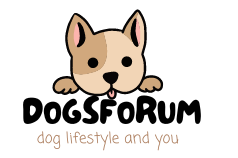

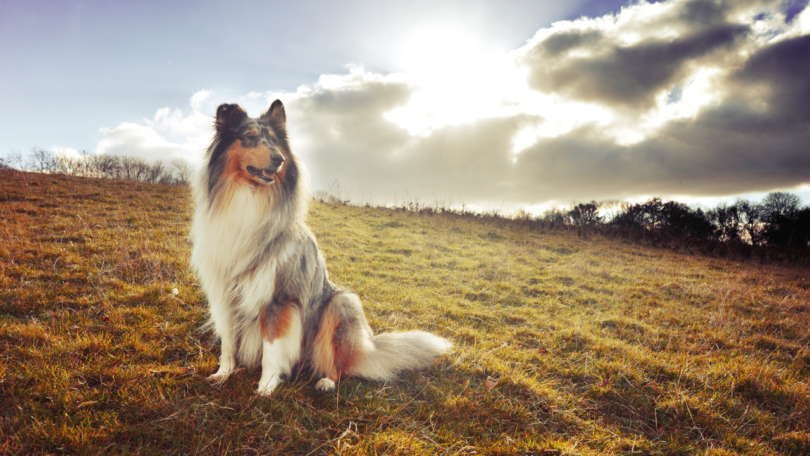


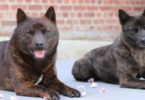
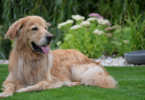
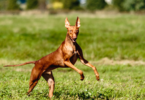
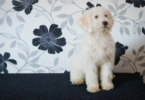

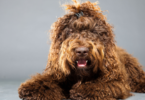
Leave a Comment